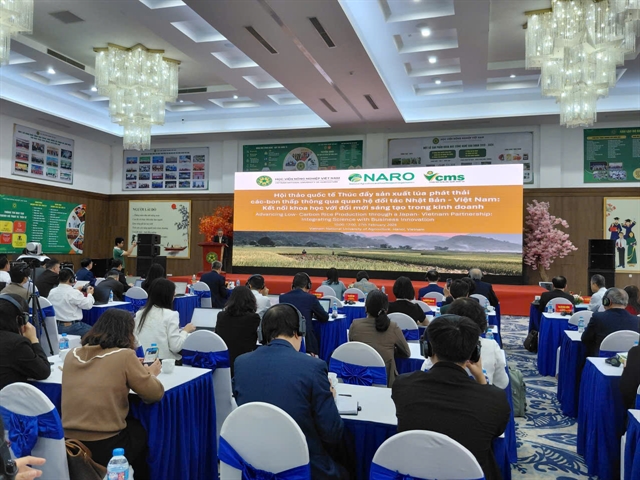 Environment
Environment
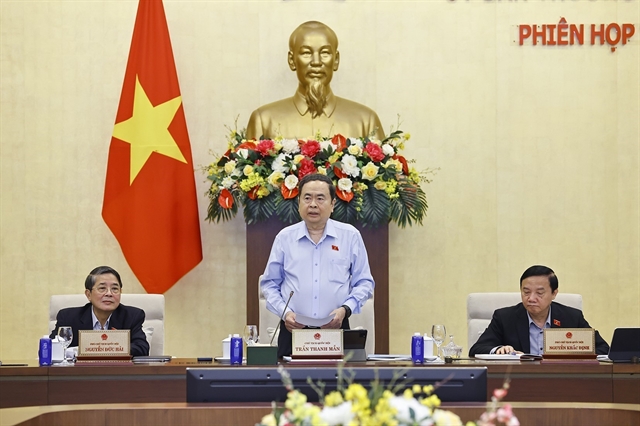
Along with professional journalists, local villagers and citizens play an important role in gathering and reporting environmental news, experts have said.

|
| Journalists from Laos, Việt Nam and Thailand and IUCN officials take a group photo with local villagers in Baan Klong Koen Village, Thailand's Chachoengson Province. VNS Photos Mai Khuyên |
By Mai Khuyên
BANGKOK — Along with professional journalists, local villagers and citizens play an important role in gathering and reporting environmental news events, experts have said.
The fundamental role of citizen journalism (CJ) in building climate resilience in the wetlands of Cambodia, Lao PDR, Thailand and Việt Nam was highlighted at a workshop held recently in Thailand’s Chachoengsao Province.
The workshop, entitled “Train-the Trainer”, was held by the International Union for Conservation of Nature (IUCN) as part of the orgnisation’s Mekong WET project. It aimed to build the capacity of media representatives and help them understand the role of members of the public in environmental protection, equipping them with the knowledge and tools to conduct citizen journalism workshops in their respective counties.
The CJ component of the three-phase Mekong WET project aims to empower local communities to raise awareness of the impacts of climate change on wetland ecosystems, said Ann Moey from the IUCN.
Key activities include providing support to help citizen journalists write and present stories on the impacts of climate change on wetlands, wetland management and strategies and interventions to mitigate these impacts, according to Ann.
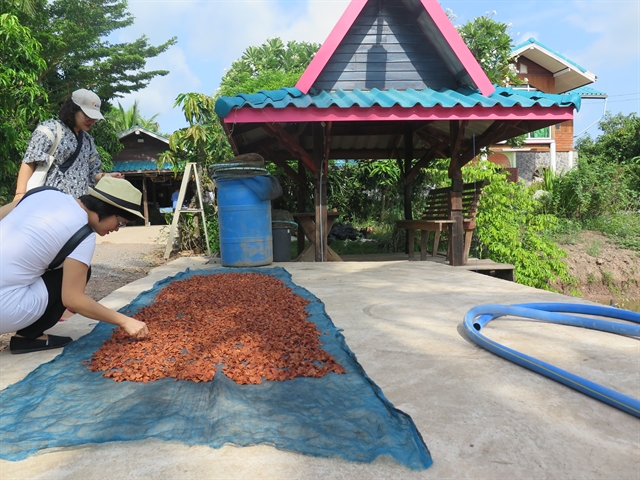
|
| Journalists on the job exploring the impacts of climate change at Amnaj Tanchiang Farm in Thailand. |
Professional journalists from media and news agencies from Mekong countries including the Thai Public Broadcasting Service (PBS), Laos Star TV, Cambodia’s Hang Meas TV, Vietnam Television and the Việt Nam News shared experiences in developing the CJ network in their own countries.
They also had chances to learn from CJ training experts from Thai PBS.
Stressing the importance of members of the public during the current global boom of social networks and internet coverage, particularly in environmental protection, Pipope Panitchpakdi from Thai PBS said that with just a cheap phone in hand, a local villager could work as a reporter by relaying the issues he or she sees in the community.
“It can tell much more about the real situation than millions of words one can write just sitting in the office and reporting about something far away,” said Pipope.
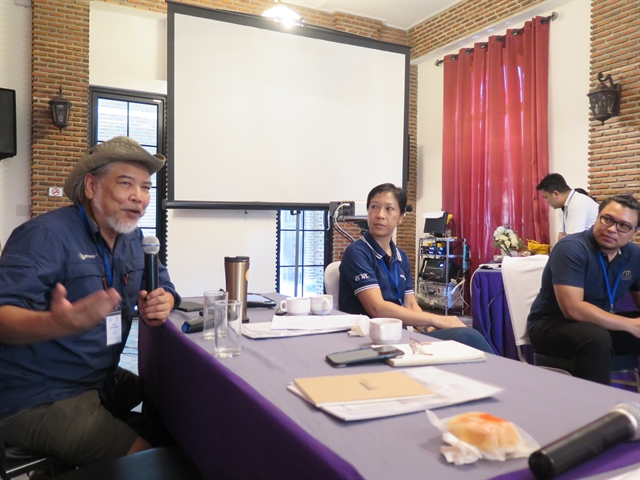
|
| Pipope Panitchpakdi (left) from Thai PBS speaks with participants at the workshop about environmental citizen journalism. |
Pipope, who has 10 years of experience training local citizen journalists, appealed for journalists in the region to develop wide and close-knit CJ networks as a way to get the most up-to-date and accurate information about environmental issues.
Speaking from the workshop, Long Heng, a journalist from Cambodia's Hang Meas TV, said it was a good experience for professional journalists from Mekong region to learn about the importance of citizen journalists and their contribution to the mainstream media.
“To help them be more active and effective in reporting about environmental issues, particularly those in wetland regions, it is necessary to have close collaboration with them," said Long.
"Support and co-operation among all sides of society including the IUCN, governments and local authorities are also one of the important factors to boost CJ operation."
Long highlighted the protection of citizen journalists, saying it should be a big concern.
“CJs could face lawsuits as they do not have adequate knowledge about the law during their journalism activities," said Long. "They are also vulnerable to being attacked due to a lack of protection."
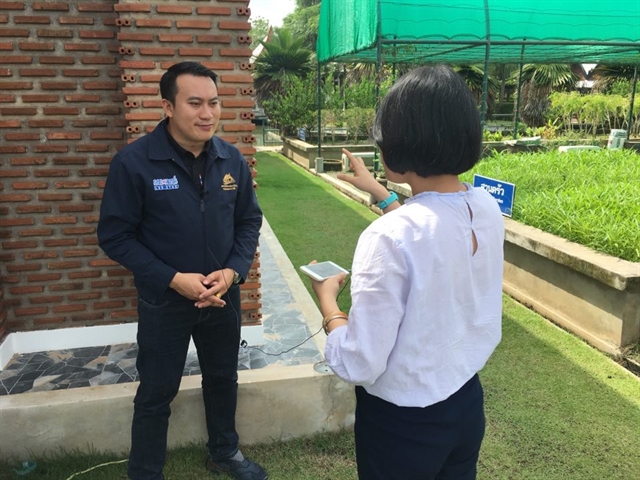
|
| Southiphone Phafong (left) from LaoStar TV being interviewed. |
Meanwhile, Southiphone Phafong from LaoStar TV said training local villagers and citizens to become journalists is important in the context of the worldwide information technology boom.
“Anyone can work as a journalist with just a cheap mobile phone,” said Phafong.
After the workshop, which concluded on June 24, participants all committed to continuing to suppport the project.
They promised to boost the development of CJ in their home countries by setting up CJ networks in their own media, particularly by organising training courses for local villagers to become citizen journalists.
Mekong WET
Implemented from January 2017 to December 2020, "Mekong WET: Building Resilience of Wetlands in the Lower Mekong Region” is funded by the International Climate Initiative (IKI) of the German Federal Ministry for the Environment, Nature Conservation, Building and Nuclear Safety. It is designed to help Cambodia, Lao PDR, Thailand and Việt Nam address their committements to the Ramsar Convention, an international treaty for the conservation and sustainable use of wetlands, and to achieve the Aichi Biodiverisity Targets.
Through its focus on wetland ecosystems and adaptation to climate change, the project also supports governments in pursuing their commitments on climate change adaptation and mitigation under the United Nations Framework Convention on Climate Change and implementing their National Biodiversity Strategies and Action Plans under the Convention on Biodiversity, according to Raphael Glemet, senior programme officer, Water and Wetlands, IUCN, Asia Regional Office.
Glemet laid out the project’s key achievements to date in a report released at the workshop, saying the project supported the development of the Indo-Burma Ramsar Regional Initiative (IBRRI), created to provide a dialogue and learning platform for regional governance and the implementation of the Ramsar Convention.
IBRRI launched its five-year strategic plan at World Wetlands Day this year.
Ten climate change vulnerability assessments were conducted with local and national stakeholders to highlight impacts on regional wetlands, said Glemet in his report. The assessments will be used to develop local adaptation plans. — VNS




